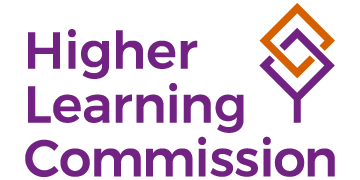
Higher Learning Commission

Integrated Tech Stack Helps HLC Partner with More Colleges and Universities
The Higher Learning Commission (HLC) is an institutional accreditor recognized by the U.S. Department of Education and the Council for Higher Education Accreditation to accredit degree-granting colleges and universities. Only institutions accredited by a recognized agency can receive federal financial aid to disperse to students.
For years, HLC’s teams were frustrated, struggling with a slow, limited system that was difficult to pull data from or push data into. The organization selected Salesforce as the basis for a new, expansible platform that would empower its staff to manage complex processes and thousands of external contacts efficiently. The new customized online system saves staff members hours of manual work previously spent on tedious tasks, so they can focus on higher value activities and support volunteer peer reviewers and educational institutions more effectively.
-
63%less time needed to configure a volunteer team
-
20hours a week saved on email and manual tasks
-
60%reduction in data entry and upkeep activities
Evolving Beyond a Limited Legacy Platform and Siloed Spreadsheets
To manage the accreditation of its member colleges and universities, HLC’s 60-person staff employs a variety of detailed processes. HLC staff liaisons build relationships with representatives of hundreds of U.S. educational institutions. Accreditation services staff coordinate evaluations that look at all aspects of an institution’s performance, including its operations, academic offerings, and finances. Other staff members manage applications from volunteers who want to become peer reviewers, responsible for conducting the evaluations.
When an institution is evaluated, HLC assembles an appropriate team of peer reviewers, based on their expertise, avoiding conflicts of interest. The team’s review must be compared with the institution’s own statements about how it meets HLC’s criteria, along with supporting evidence. Peer reviewers are also selected to serve on decision-making bodies that review the team’s evaluation and take action.
With HLC’s previous system, much of this work had to be done manually, using email and spreadsheets. The organization’s custom-built, proprietary technology had chronic issues. It was almost impossible to pull data from it or push data into it, and the data it provided wasn’t trustworthy. “Our staff was generally miserable using the tool they had,” said Chief Information Officer Jon Davenport, describing how the old system hobbled employees’ ability to do their jobs.
Once their vendor announced it would no longer support the customizations it had built for HLC, leadership decided it was time for a major change.
People are no longer miserable and unhappy with the technology. They want to learn more. They want to do more.” Jon Davenport, Chief Information OfficerHigher Learning Commission
Customizing the Stakeholder 360 for Accreditation Management
HLC decided to use a CRM platform as a foundation and customize a solution to match the organization’s business processes. The core of the solution is Sales Cloud, which provides a 360 degree view of all institutions, contacts, locations, accreditation events, and decision outcomes.
HLC’s legacy data was poorly structured and hard to decipher, and migrating it proved challenging. The team used the Jitterbit Harmony ETL tool to extract, transform, and load the data — more than 450,000 data points — into their Salesforce instance, which HLC calls Radix. To secure its data, HLC deployed Salesforce Shield, which allows it to log changes made at the field level and retain records for 10 years.
Salesforce consulting partner AmericanEagle.com used Salesforce Lightning UI and Web Components to build Radix a dynamic user interface, tailored to meet HLC’s needs. Liaisons can quickly check on a college’s progress through the evaluation process by opening that institution’s account in Radix. They subscribe to an automated weekly report that lists all relevant personnel changes at their assigned institutions. A custom feature has decreased the average time it takes staff to assemble a team of peer reviewers for an assignment by 63%.
AmericanEagle.com also built HLC an external portal, integrated with Radix via APIs. Through it, peer reviewers and institutional representatives update their profile information, communicate with HLC directly, and download reports. Some of the more complex reports are generated and updated in real time by Conga Composer. Prospective peer reviewers apply via a form in the external portal, which triggers creation of an application record in Radix that HLC staff use to manage the applicant review process.
Explore the Solutions:
Teams Liberated From Tedious Manual Tasks, Empowered by Real-Time Insights
CIO Jon Davenport has identified a litany of benefits of the new Salesforce environment: the IT team’s prototyping time cut from months to days, enabling them to quickly deliver new fields, user interface enhancements, and core capabilities; 20 hours of manual data and email management tasks eliminated per week; data entry and upkeep activities reduced by 60% through the use of batch updating in list views.
“We are making so many inroads in efficiency just by eliminating tedious work,” said Davenport. “I wish I could express how transformative the past year has been. People are no longer miserable and unhappy with the technology. They want to learn more. They want to do more.”
This digital transformation is helping HLC expand its reach and increase its impact across the country. Currently the organization works with 975 institutions of higher education and more than 7,000 external contacts.
The five-person IT team is working on further integrations, including moving HLC’s digital Assurance System — where institutions upload their self-evaluations and documentation — into the main external portal. The Finance team uses data in Radix to manage charges to institutions for membership and services, but they’d also like to integrate their billing system.
HLC is now deploying CRM Analytics so staff can do more sophisticated analysis and reporting of real-time changes made to records. The immediate goal is to provide the organization’s leadership with more useful dashboards and data visualizations. Eventually, HLC hopes to use predictive analysis to effectively monitor the health of member institutions and provide guidance on any troubling patterns it detects.
“Institutions rely on us for the quality assurance work that we do,” Davenport said, “and the benefit is greater to them the more we optimize our technology to support and help them.”
Power your teams with data clarity.
About the Higher Learning Commission
HLC is an independent 501(c)(3) corporation that accredits post-secondary education institutions. The U.S. Department of Education and the Council for Higher Education Accreditation recognize it as an institutional accreditor of colleges and universities that provide a quality education.